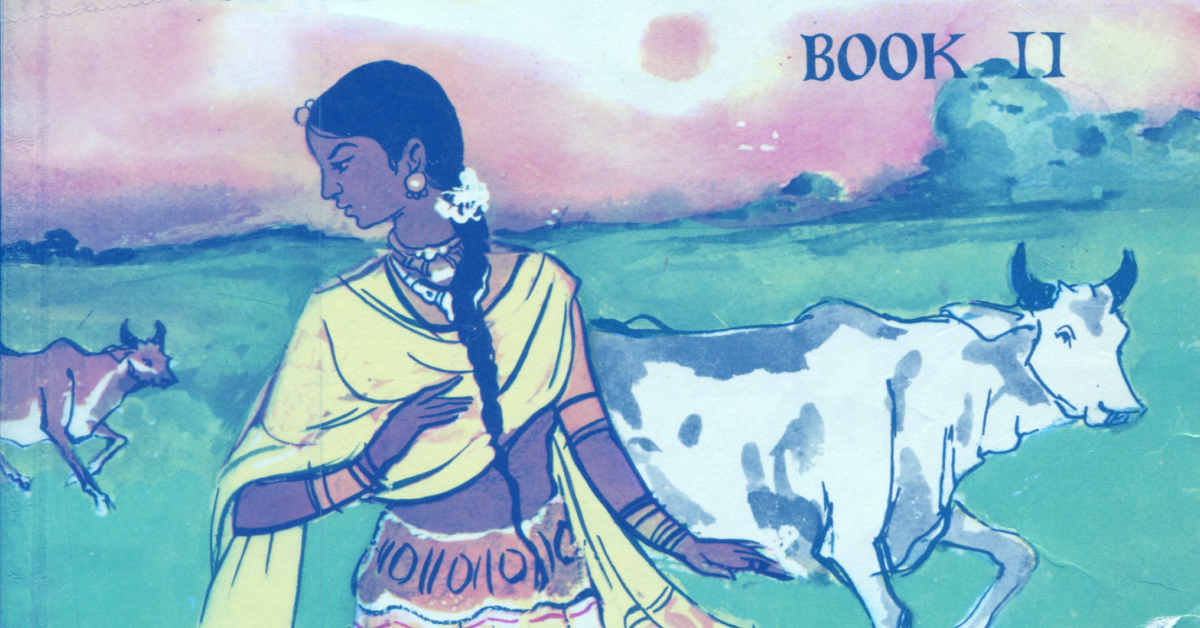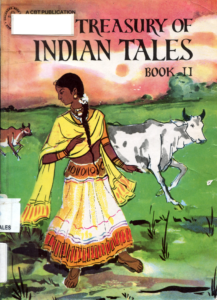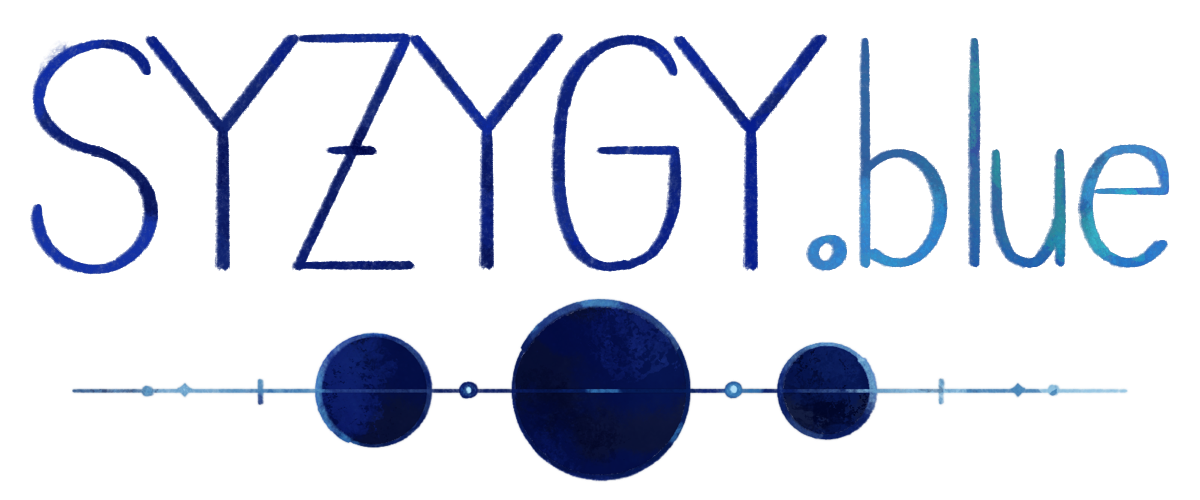
Names from Treasury of Indian Tales, Books I and II
I recently checked out just about every book of Indian stories and folktales I could get from my public library. One of the story collections I found was Treasury of Indian Tales, which my library had in two volumes (Book I and Book II). They were published in India, originally in the late 1960s.

I’m not sure if there are (or were intended to be) more volumes in this series – there is a note at the beginning saying that these stories come from a nineteen volume book called Katha-sarit-sagar. The Wikipedia page for the Kathasaritsagara doesn’t sound very much like what I read in this book, but I think this book must collect (and translate) some of the stories-within-a-story from the Kathasaritsagara.
The stories themselves are quite interesting, but I was also very interested in the names. It can be difficult to find information about Indian names if you are limited to searching in English, especially if you want to find out about older or more classic names. Since this book was written in the 60s, and is a collection of much, much older stories, I thought it was likely that any names from this book that were still in use would feel like old classic names, so I’ve collected them here for anyone else who is interested.

Methods
I wrote down every given name I could find in both volumes of Treasury of Indian Tales, grouped by whether the character was described as female or male. Most of the named characters are human, a couple are gods. Although there were plenty of stories with talking animals, the only ones who were named also had a human form.
Looking at the lists, I wondered if the names I was unfamiliar with were simply names I had never heard of, or if some of them were names that were limited to folktales only and wouldn’t have been used for people even very long ago (like “Cinderella” or “Sleeping Beauty”). Google wasn’t too helpful at separating uncommon or old-fashioned names from fairy tale names, so I asked my mother in law, who grew up in India.
My mother in law very kindly indicated which names she recognized as still in use. The names my mother in law has not seen in use are indicated with an asterisk(*) on the list below. Some of these names are probably fairy tale names, which have never or almost never been used for real people (for example, there was a story about a man named Buddhu, and my mother in law says that Buddhu means “stupid” or “fool”), but my mother in law wanted to stress that some of the names she is unfamiliar with are likely real names that are from another part of India and are just uncommon or archaic enough that she isn’t familiar with them. If you are reading this and recognize any of the names with an asterisk, I would love to hear from you in the comments!
Other notes: Shoba and Shobha are characters in two different stories, but it’s the same name and the author made two different choices when transliterating the name. Similarly, my mother in law says that Barun would be more commonly written as Varun. Yama is the name of a god (and the god shows up as a character in that story), but my mother in law says that, unlike other god names on this list, it is not common for people to be named after him.

Feminine names
- Aparanaji*
- Cheeru*
- Dakshina*
- Devi
- Himal*
- Hunchibili*
- Kiranmala*
- Lakshmi
- Lata
- Nandini
- Parvati
- Perium*
- Rupa
- Shamali
- Shoba
- Shobha
- Sujata
- Tara
- Tejimala*
Masculine names
- Ajay
- Ajit
- Arun
- Ashvini
- Ballu*
- Barun
- Bhatti*
- Buddhu*
- Chitradev*
- Damu
- Govind
- Hamir
- Janki
- Kamal
- Nagraya*
- Rambabu*
- Ramu
- Shiva
- Sodha*
- Soma*
- Vanaji*
- Vijay
- Vikramditya*
- Yama*
- Yamakumar*

Discussion
This is a pretty short list, especially if you remove all the names with an asterisk, but my hope is that if a name is old enough to show up in these stories, yet still common enough that my mother in law knows someone by that name, then it has the feel of a classic Indian name. It’s pretty hard to figure out a name’s connotation or feel when you’re a cultural outsider though, so hopefully it’s also clear that my basis for this is pretty shaky. If you’re looking for a name to use for a baby or even for a character in a story, you should probably find a second opinion.
Something else you might wonder about if you wanted to understand the feel of these names is what kinds of people these names are for. The named characters in these stories were fairly evenly split between good and bad, clever and foolish – it was more that some stories had names and others didn’t than that certain types of characters had names and others didn’t. The stories that mentioned a geographic origin seemed to be scattered across a pretty broad region, although that’s just my impression of the collection as a whole, I didn’t look up every unfamiliar place name nor check if there was a geographic pattern to which stories had named characters. Some of these names belonged to characters who were gods or royalty, but most seemed to be regular people (often “a rich merchant” or “a poor laborer”) living in small towns. The characters mostly seem to be Hindu (or maybe Buddhist in some stories), which I mention because it contrasts with the Akbar-Birbal story collections I was reading at the same time, which come from the Mughal Empire and feature many Muslim characters.
I’m still trying to expand my own mental library of Indian names, so there will probably be a couple other posts like this one coming up. If anyone reading this has any good ideas for where to learn more about historical Indian names, or is willing to share the given names of anyone they know who is Indian (including diaspora) and born between roughly 1910 and 1930, please leave a comment!
